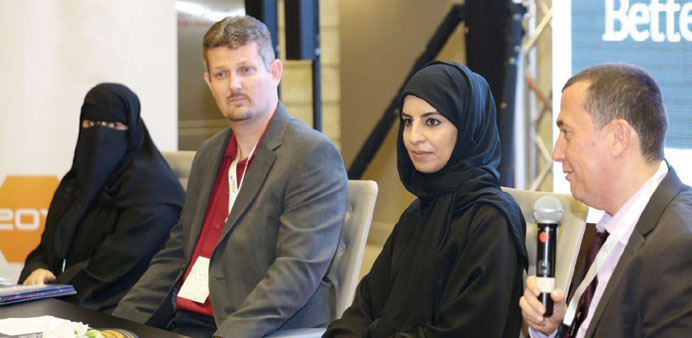Qatar’s almost half a million migrant workers, who are mostly housed in labour accommodations, are to get access to Information and Communications Technology (ICT) tools, it was announced yesterday.
The initiative is an outcome of the “Better Connections Programme” launched by the Ministry of Information and Communications Technology (ictQatar) within the framework of its digital inclusion programmes.
The programme, which “provides content that is relevant to the needs of migrant workers”, will be available in languages such as English, Arabic, Hindi, Bengali and Nepali.
Under the “Better Connections Programme”, ictQatar will help employers provide ICT access within workers’ accommodation and integrate them into a new country and culture.
The launch took place at the third edition of the Qatar ICT Conference and Exhibition, Qitcom 2014, which concluded yesterday at the Qatar National Convention Centre.
“The lack of facilities and unfamiliarity with the Internet are some of the barriers for Qatar’s migrant workers. The Better Connections Programme has been established to create a framework towards realisation of digital inclusion across our transient labour force,” said Reem al-Mansoori, the ministry’s executive director for ICT and Society.
“In order to ensure that we provide a holistic programme, we worked in partnership with stakeholders so that we could support workers at their accommodations, ensuring that they have access to the Internet, computers and digital content,” she explained.
The programme will provide a room or designated area for computer access and ICT training at labour accommodations; source low-cost computers through a recycling scheme to keep any outgoings to a minimum; fixed or wireless Internet connection; and appropriate content and training to help deliver ICT-based training to meet the needs of the transient labour force.
Most of the learning resources will be provided in five different languages: Arabic, English, Hindi, Nepali and Bengali.
This is to include a range of interactive learning modules to support digital inclusion of migrant workers and enabling implementation of the Better Connections Programme, to include introduction to Qatar, workers’ rights, financial literacy, health and safety and ICT skills.
Content, supported by the National Human Rights Committee (NHRC), offers important information on the rights of Qatar workers.
NHRC legal consultant Hala al-Ali described the programme as an “excellent idea” for workers and employers.
“NHRC provided important information about access to legal system in the State of Qatar, including international standards relating to the responsibility of states and companies. In addition, NHRC is committed in providing updated information as the law changes,” al-Ali said. Page 44

